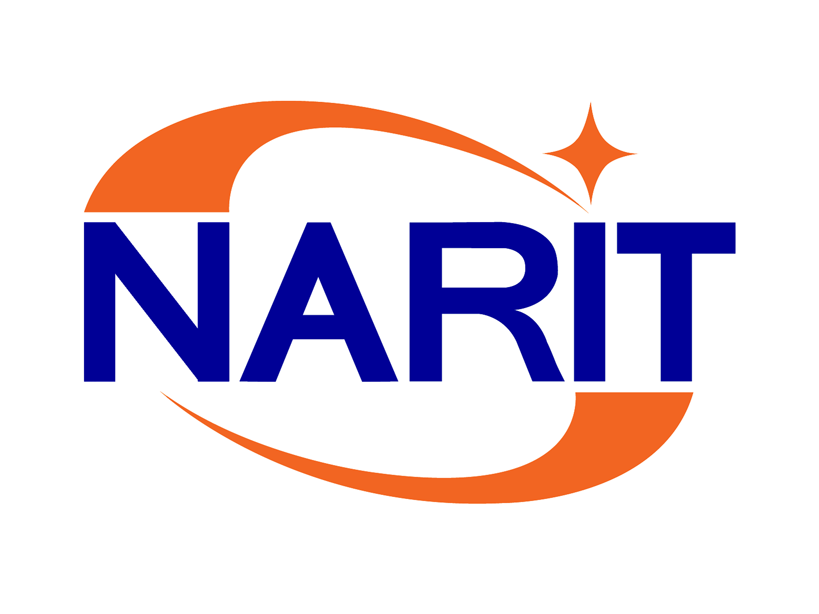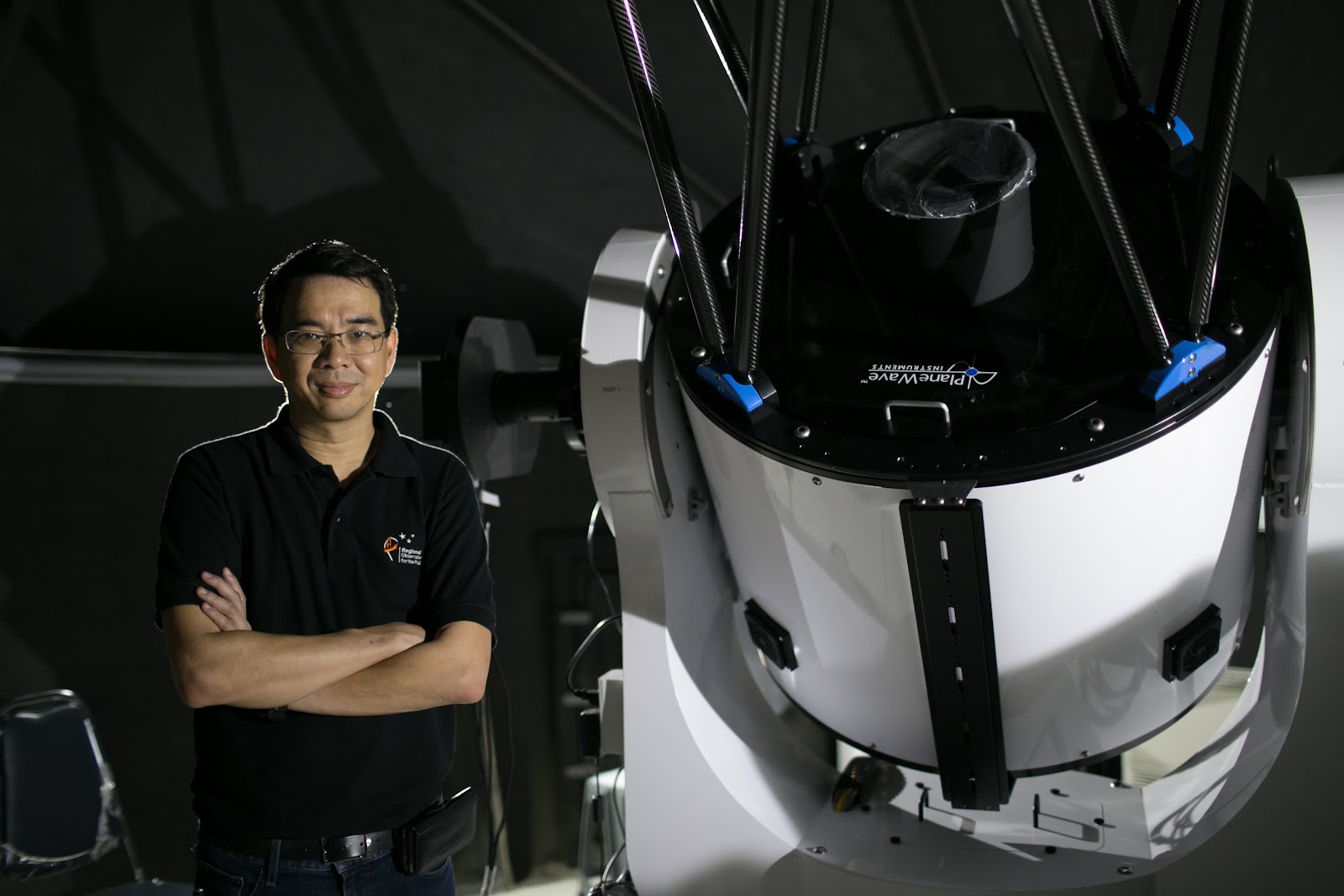|
Born: 1964, Bangkok, Thailand |
|
|
Education Professional Background Current Fields of Expertise & Interests |
|
Born in Bangkok in 1964, Saran was captivated by the stars from an early age! Starting in 1976, He spent hours looking at them through his uncle 's telescope. His fascination with the Universe inspired him to love reading many books, especially about scientific inventions and discoveries, and he aspired to become a scientist.
At that time, pursuing a career in astronomy was hindered by the lack of adequate astronomical research infrastructure and facilities in Thailand. He therefore decided to continue his studies in Chemistry at Chiang Mai University, keeping astronomy as his favourite hobby.
After graduation in 1986, he went to continue his studies in the U.K., where he received the Development and Promotion of Science and Technology Talents Project (DPST) Scholarship from the Royal Thai Government. In 1990, he was awarded a Ph.D. in Polymer Science and returned to work for the Ministry of Science and Technology in Thailand. He was part of the task force that established the National Metal and Materials Technology Center (MTEC) and subsequently, the National Science and Technology Development Agency (NSTDA).
Despite working on instrumentation and setting up laboratories, his passion for astronomy remained. During the 1990s, he was one of very few Thai amateur astronomers, distinguished by his deep and extensive knowledge and enthusiasm in Astronomy. His expertise was recognised by the Ministry, and was often called upon to advise on important astronomical events and was relied upon to represent the Ministry in media interviews and press releases.
During the 1995 total solar eclipse in Thailand, Saran, with his personal telescope, led NSTDA colleagues and family for the observation in Nakhon Ratchasima. This rare event left a lasting impression, inspiring him to witness as many eclipses as possible in his lifetime. As Thailand's first total solar eclipse observation in most people’s lifetime, it captured nationwide attention and spurred interest in astronomy. To date, he has observed 13 total solar eclipses, the highest record for a Thai astronomer. Saran has led the NARIT outreach team to observe total solar eclipses in China (2009), Australia (2012), Norway (2015), Indonesia (2016), the USA (2017), Chile (2019), and Timor Leste (2023). The results and media clips from the observations were reported to the public via press release and social media.
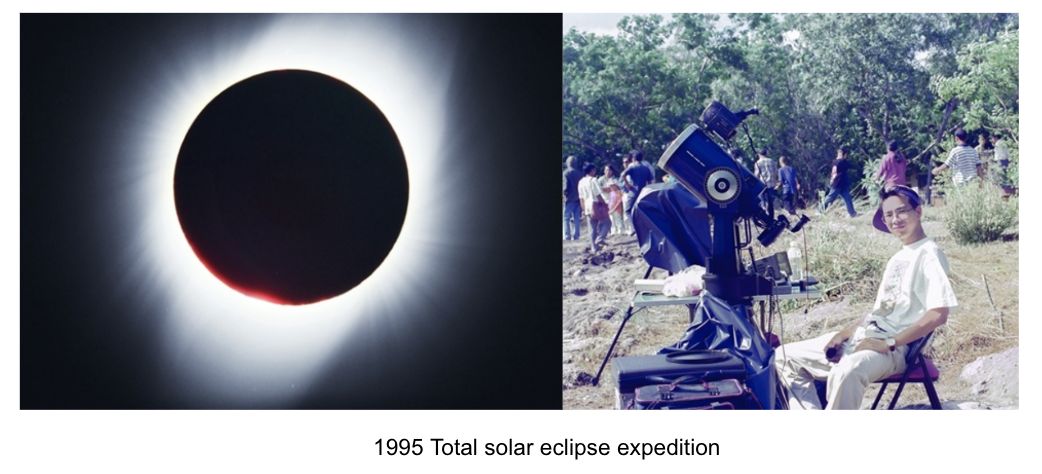
In early 1997, the appearance of Comet C/1995O1(Hale-Bopp) led him and fellow amateur astronomers to Doi Inthanon, Thailand's highest point at 2565 m above sea level, known for its excellent sky quality. The Mars Pathfinder landing in July 1997 prompted the Minister of Science and Technology to seek his insights on advancing astronomy in Thailand. Saran proposed establishing the Thai National Observatory on Doi Inthanon, a plan approved by the minister but stalled due to the Asian economic crisis.
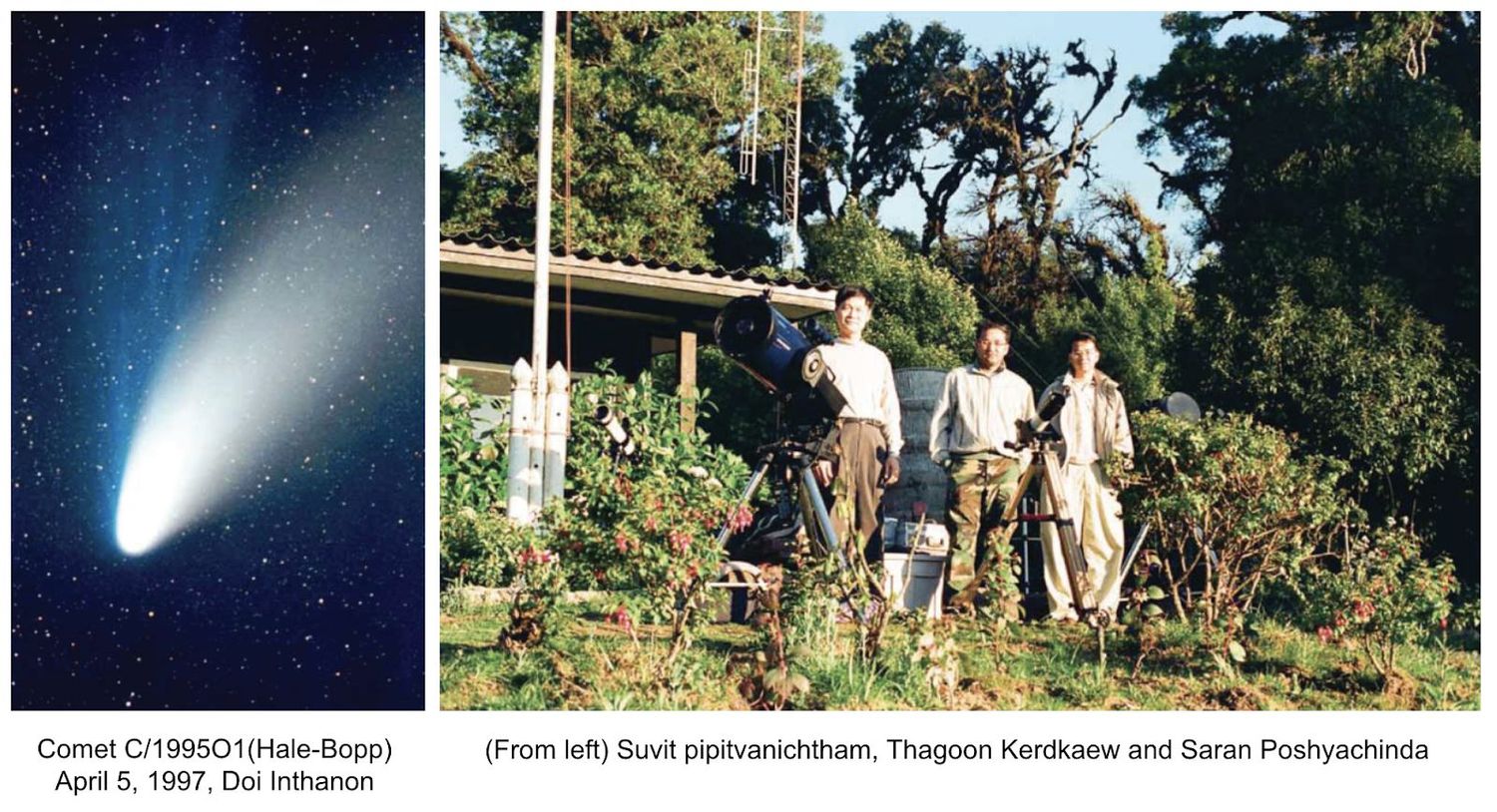
In 2001, he also advocated for integrating Earth Science, Astronomy, and Space Science into the 12-year National Science Curriculum. Inspired by his childhood experience, he aimed to standardise the opportunity for Thai children to observe Saturn's rings at primary school level. This is a turning point to show that Thailand really lacks astronomy teachers and therefore, needs research infrastructure to produce qualified teachers to serve the nation's needs.
In 2002, as the founding Dean of the Faculty of Science at the Mae Fah Luang University and, a member of the Council of Deans of Faculties of Science in Thailand, rallied support to propose to the government the establishment of a national astronomical research institute with its dedicated national observatory. The proposal was successfully approved in 2004 and led to the establishment of the National Astronomical Research Institute (NARIT). In 2009, NARIT transitioned into a public organisation, with Saran as the founding deputy director to Assoc. Prof. Boonrucksar Soonthornthum, the founding director. Saran played a key role in studying and selecting the optimal design for the 2.4m Thai National Telescope (TNT), the largest in Southeast Asia, and oversaw its construction and commissioning - a major milestone in advancing Thailand's astronomical research capabilities.

Since 2009, Saran has led the establishment and ongoing support of NARIT's outreach team, prioritising public engagement and astronomy education. This approach distinguishes NARIT as a unique global organisation, showcasing its societal impact and fiscal responsibility. The outreach team has grown significantly to 60 members, focusing on in-house production of exhibition content, media materials, and public event organisation.
Additionally, NARIT's outreach team advises other science centres in astronomy and space science nationwide.
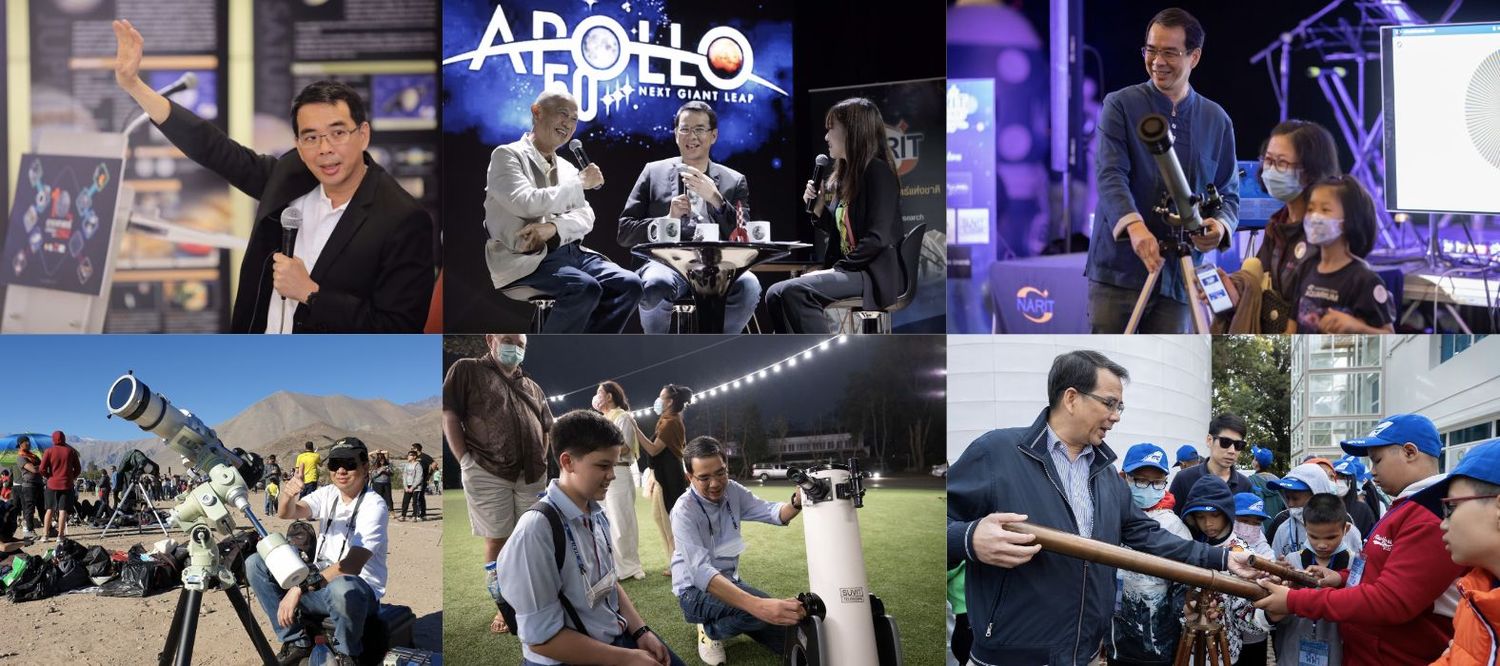
In 2022, Saran spearheaded the development of an in-house planetarium software system, with a focus on affordability and sustainability. Subsequently, this project evolved into a mobile application platform, extending its reach and impact.
Saran also oversaw the planning and establishment of 5 Regional Public Observatories nationwide, each receiving over 100K annual visitors. Thanks to the cost-effective in-house design of planetarium content and software, as well as exhibitions by the NARIT outreach team, there is a demand for phase 2 expansion to 4 further provinces throughout Thailand.
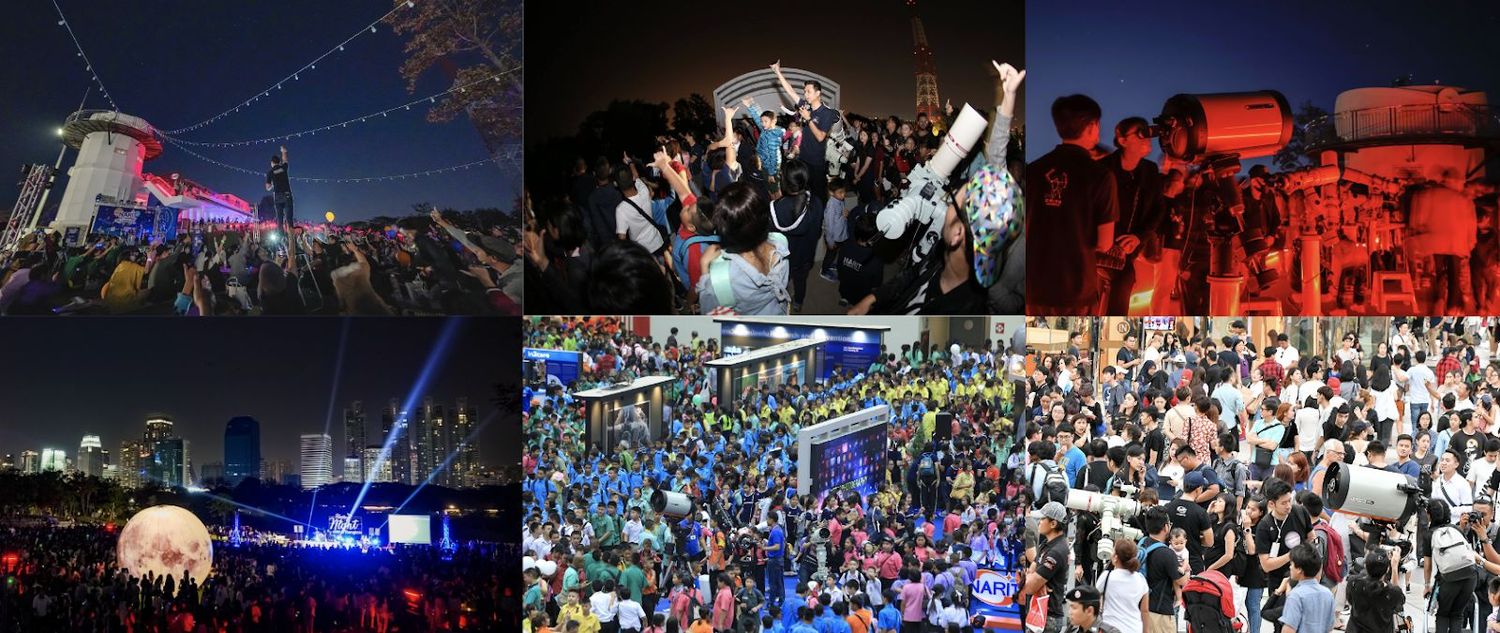
Under his leadership as Executive Director in 2017, he propelled NARIT forward by leveraging astronomy as a catalyst for human capacity and technology advancements. This vision led to the establishment of the 40-m Thai National Radio Telescope (TNRT) as a second national research facility. He actively promoted and supported advanced engineering development in various areas such as advanced optics and photonics, mirror coating and anodization, high-precision machining, mechatronics, and control systems, as well as radio frequency technologies. As a result, NARIT's engineering staff expanded from a few individuals to a dedicated team of 99 professionals. In 2021, Saran played a crucial role in establishing the Thai Space Consortium, dedicated to developing small satellites for scientific research, utilising NARIT's astronomy technology and highly skilled engineers. This initiative has led to public understanding of astronomy for development and also fosters national pride while encouraging youth to pursue STEM careers.
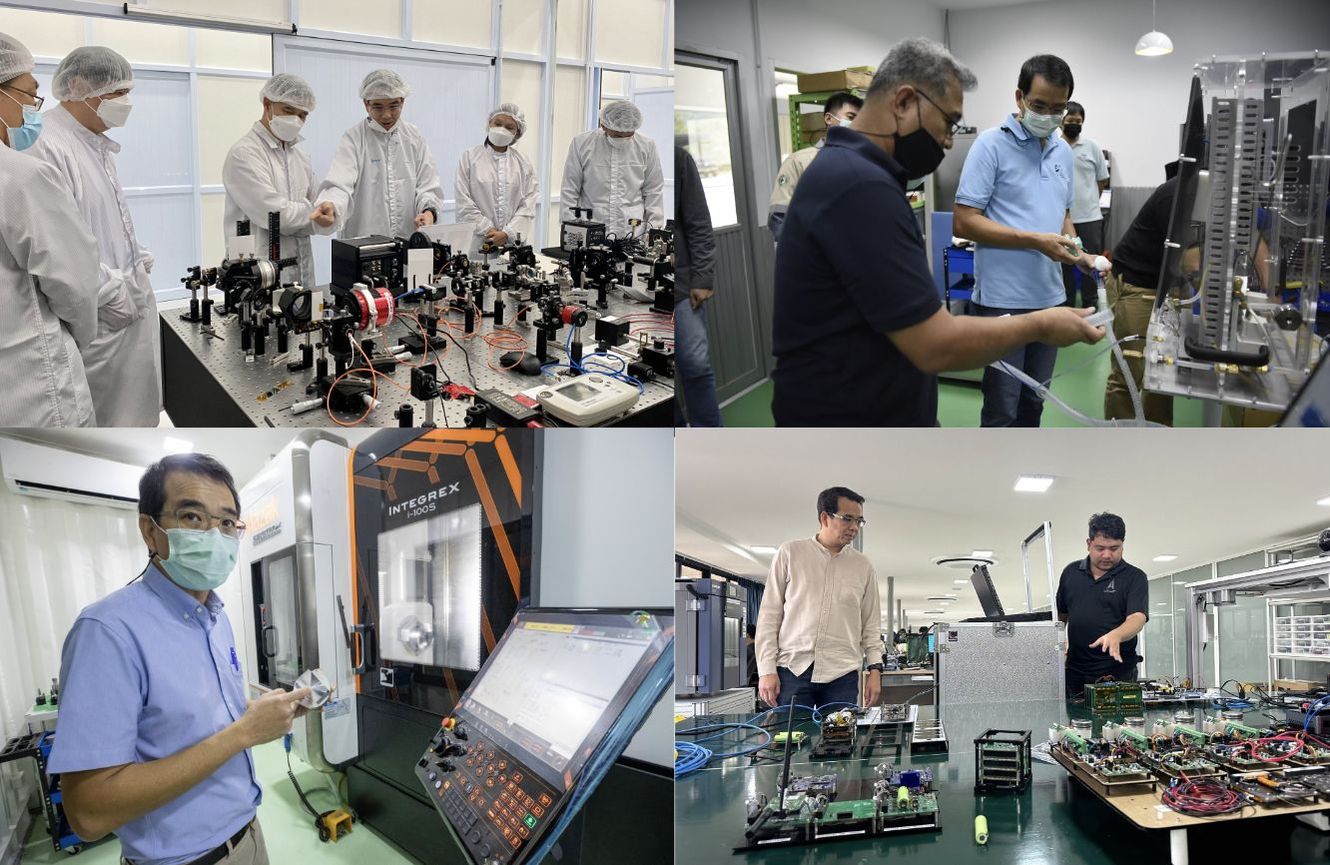
At the international level, NARIT has been entrusted by the IAU and UNESCO to host the Southeast Asia - Regional Office of Astronomy for Development (SEA-ROAD) since 2012, organising numerous activities involving participants from across Southeast Asia. Additionally, NARIT serves as the host institution for the International Training Center in Astronomy (ITCA) under UNESCO since 2017, conducting multiple training events with participants from various countries (e.g. establishing the first Laos National Observatory & Planetarium, student training & telescope donation to Myanmar, EastTimor and Cambodia, and training in Vietnam).

The first Laos National Observatory & Planetarium.
In 2019, the IAU honoured him by naming minor planet 2000 EJ148 after him for his efforts in promoting public interest in astronomy and overseeing the construction of the Thai National Observatory and regional observatories, acknowledging his contributions.
Astrophotography & Dark Sky Campaign : In 2008, Saran expanded his efforts to promote astronomy in Thailand by establishing the first Thailand Astro Photo contest. This initiative provided a platform for amateur astronomers across the country to showcase their astrophotography skills and share their passion for the cosmos with a wider audience. In 2022, NARIT in collaboration with Thailand Tourist Authority launched the Amazing Dark Sky Campaign Under IAU Global Outreach Project - certified and registered 30 sites nationwide. This project has ignited Astro-tourism & star gazing activities widespread in Thailand. NARIT also plans to register Huai Hong Khrai RDSC, the home of the 40-metre Thai National Radio Telescope (TNRT), for protection under Dark and Quiet Sky initiatives.
Link to Saran's Astrophotography
Link to online Talks & Media Interviews:
Thailand Today2021 EP60 : Astronomy in Thailand
https://www.youtube.com/watch?v=TsMP4U_BGBI
NARIT - National Astronomical Research Institute of Thailand (Public Organization)
https://www.youtube.com/watch?v=uuDBvH7kjr8
Saran Poshyachinda - Public engagement through the education and outreach activities by the NARIT - CAP Conference 2021
https://www.youtube.com/watch?v=67GpZmeImzY
This is a recording of a virtual talk given by Dr Saran Poshyachinda, Executive Director of National Astronomical Research Institute of Thailand (NARIT), to the Astronomical Society of Botswana on 25 February 2021.
https://www.youtube.com/watch?v=0Y68jYIDDKY
ITCA Colloquium - Astronomy for STEM Education
https://www.youtube.com/watch?v=rAB1GyPnMO0
Thailand Today2017: Mars Opposition 2017 Dr. Saran Poshyachinda
https://www.youtube.com/watch?v=yL8Kfe6p8KU
TotalSolarEclipse 2015 by NARIT
https://www.youtube.com/watch?v=VyC6fcUCVN8
20.04.2023 Total Solar Eclipse @Timor-Leste
https://www.youtube.com/watch?v=3o5tUJrzUc4
